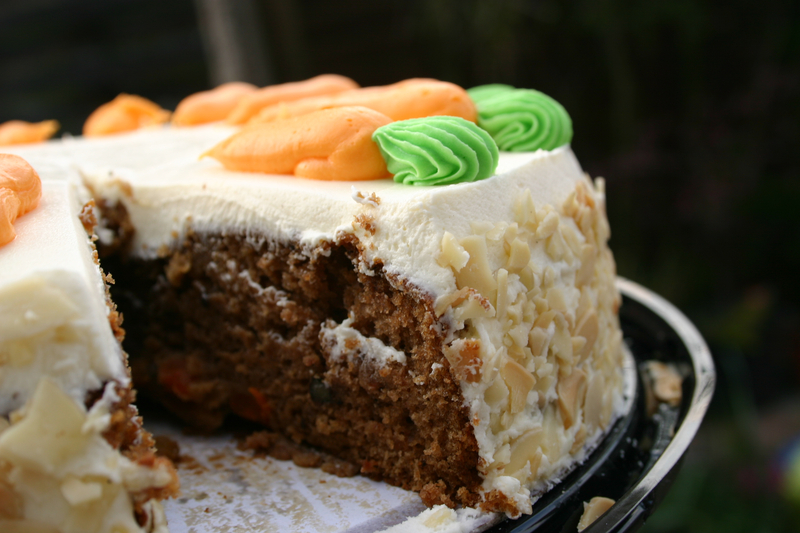 Carrot cake, with its moist texture and delightful sweetness, is a beloved treat for many.
Carrot cake, with its moist texture and delightful sweetness, is a beloved treat for many.
However, some bakers have encountered a puzzling phenomenon – blackened bits in their carrot cake.
This unexpected occurrence has left many wondering, “Why do carrots turn black in carrot cake?”
Let’s delve into the science and factors behind this culinary mystery.
Understanding the Composition of Carrots
To comprehend the discoloration of carrots in carrot cake, it’s essential to understand the composition of these vibrant orange vegetables.
Carrots contain pigments called carotenoids, primarily beta-carotene, which give them their characteristic color.
These pigments are sensitive to changes in pH, temperature, and the presence of certain elements.
The Role of pH in Carrot Discoloration
 One significant factor contributing to carrot discoloration in carrot cake is the pH level of the batter.
One significant factor contributing to carrot discoloration in carrot cake is the pH level of the batter.
Carrots are naturally acidic, and when combined with the alkaline ingredients in a cake batter, a chemical reaction occurs.
This reaction can lead to the breakdown of carotenoid pigments, causing the carrots to darken or turn black during baking.
Baking Soda and Its Impact
Baking soda is a common ingredient in carrot cake recipes.
While it helps the cake rise and contributes to its texture, it can also affect the pH of the batter.
Baking soda is alkaline, and when it reacts with acidic ingredients like carrots, it can intensify the breakdown of carotenoids, resulting in discoloration.
Overmixing and Oxidation
 Overmixing the carrot cake batter can introduce more air into the mixture, promoting oxidation.
Overmixing the carrot cake batter can introduce more air into the mixture, promoting oxidation.
When carrots are exposed to air, they can oxidize and develop a darker color.
This process is exacerbated by the release of enzymes present in the carrots, leading to the formation of compounds that contribute to the blackening effect.
The Importance of Fresh Carrots
The freshness of the carrots used in the cake also plays a role in preventing discoloration.
As carrots age, their cell structure weakens, making them more prone to enzymatic activity and oxidation.
Fresh, firm carrots are less likely to turn black during baking.
Preventing Carrot Discoloration in Carrot Cake
- Controlled Mixing: Avoid overmixing the batter to prevent excessive air incorporation and oxidation.
- pH Balance: Consider the pH of your batter and aim for a balanced combination of acidic and alkaline ingredients.
- Fresh Ingredients: Use fresh, firm carrots and ensure that all ingredients are within their shelf life.
- Pre-treatment: Some bakers recommend blanching or microwaving carrots briefly before adding them to the batter to deactivate enzymes and reduce the risk of discoloration.
Bottom Line – Why Do Carrots Turn Black in Carrot Cake?
 The mystery of why carrots turn black in carrot cake is rooted in the complex interactions between pH, temperature, and the composition of the ingredients.
The mystery of why carrots turn black in carrot cake is rooted in the complex interactions between pH, temperature, and the composition of the ingredients.
By understanding these factors and implementing preventive measures, bakers can enjoy a delightful, visually appealing carrot cake every time.


